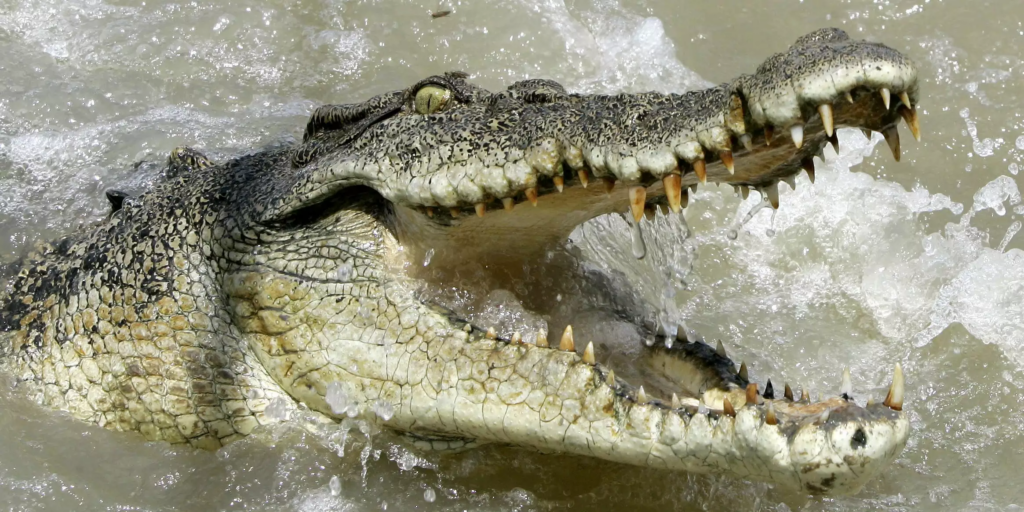After a crocodile bit his head, an Australian man survived.
A saltwater crocodile (Crocodylus porosus) attacked Marcus McGowan from behind while snorkeling 25 miles (40 kilometers) off Cape York in Queensland. These reptiles have the strongest measured biting force on Earth. Before the lizard could snap harder, McGowan opened its jaws.
“I was able to lever its jaws open just far enough to get my head out,” McGowan said. “The crocodile then attempted to attack me a second time, but I managed to push it away with my right hand, which was then bitten by the croc.”
He was transported to the hospital for scalp lacerations and puncture wounds on his head and hand, minor injuries considering he faced one of the world’s most fearsome predators.

Strong bite
Crocodile jaws are very strong. “It might look like they have really fat necks, but actually that’s extra jaw muscle,” University of Arizona anatomical researcher Paul Gignac told Live Science.
A 2012 research co-authored by Gignac found that mature saltwater crocodiles can clamp down on their prey with 3,700 pounds per square inch (16,460 newtons) using their ventral pterygoideus muscle. Jaguars (Panthera onca) bite at 1,500 psi.
McGowan thinks the young crocodile that attacked him was 6.5 to 10 feet (2 to 3 meters) long. Gignac reported immature crocodiles may generate 250 psi (1,112 newtons) of biting force at the rear of their jaws.
“It is generally surprising [McGowan survived],” Gignac added. Crocodiles “not known to let go once they hold on.”
“This man’s probably especially lucky that the juvenile was either too small or didn’t have a positioning to start rolling,” Gignac said, referring to the “death roll,” in which crocodiles violently twist in the water while holding their prey to disorient or dismember it.

“Otherwise, it might be the case that this person would have lost a limb.”
Facing death
How did McGowan escape the crocodile’s vice? There may be several causes. The crocodile may have been unable to fully engulf McGowan.
“The bite force gets lower as you go out away from the jaw joint,” Gignac explained. “Due to lever engineering or physics, the tip of their snout will typically have about 40% lower bite force.”
Croc stamina may have contributed. Reptiles are cold-blooded, or ectothermic, and have slower metabolisms than endothermic creatures.
They have less energy than other endothermic creatures. “They do become tired relatively quickly,” Gignac remarked, adding that crocodiles require rest before peaking.
Thus, a human may escape a crocodile’s mouth under these conditions. Humans release large quantities of adrenaline when attacked, speeding up their heart and respiration. This process boosts energy by oxygenating muscles.
“A full grown man with adrenaline could — in that situation — pry open a 200-pound vise essentially,” Gignac added. It would be hard, but when you have no other option, you do it. It’s possible.”
What should you do if you battle this apex predator?
“If you have an object with you, and you have the wherewithal to go for the eyes, that’s probably the most sensitive place on [the] head of a crocodile or alligator,” Gignac added. “My best advice is to avoid alligator or crocodile fights.”
